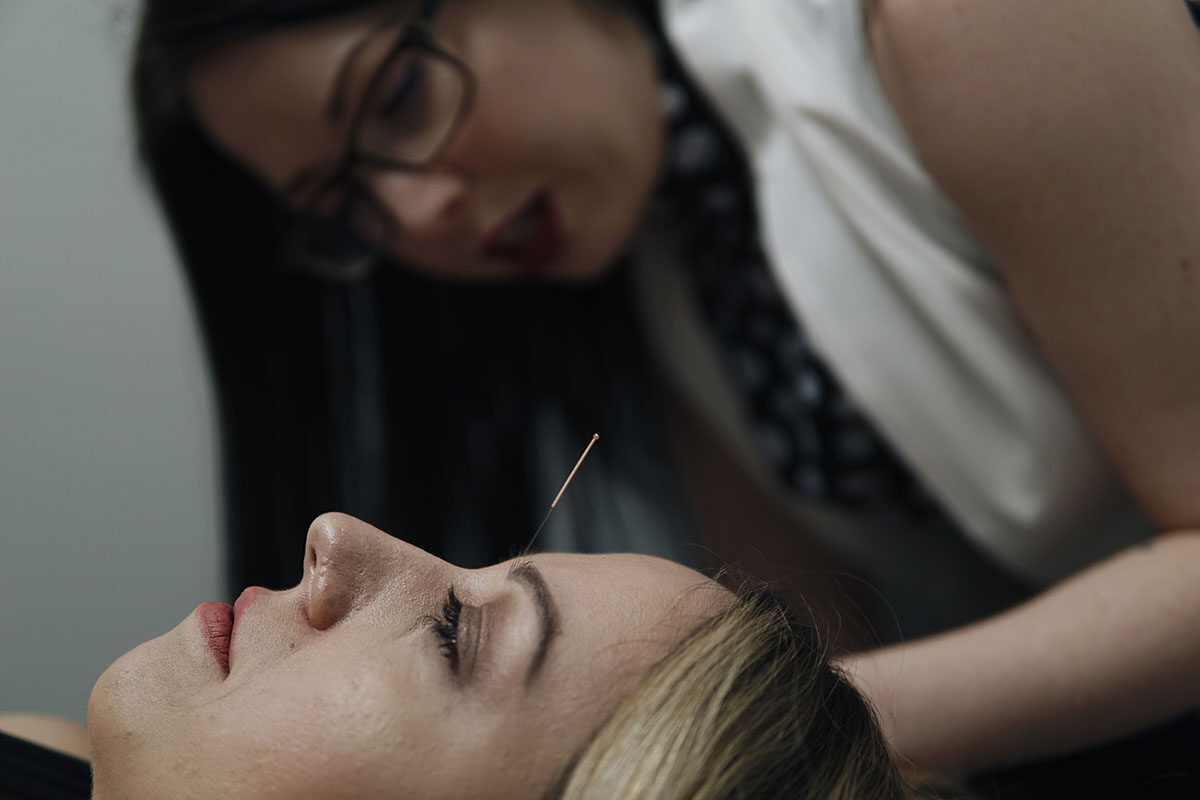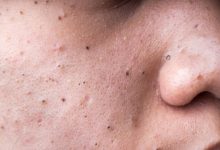Acupuncture for Stress and Anxiety: A Natural Solution to Find Balance

In today’s fast-paced world, stress and anxiety have become all too common. With increasing pressures from work, personal life, and the overwhelming flow of information, many people are seeking natural, holistic treatments to help manage their mental and emotional well-being. One such treatment that has gained popularity over the years is Acupuncture. Rooted in Traditional Chinese Medicine (TCM), acupuncture offers a natural way to balance the body and mind, helping to reduce stress and alleviate anxiety. In this article, we explore how acupuncture works, its benefits for stress and anxiety, and why it’s becoming a go-to therapy for those looking to reclaim their sense of calm.
What is Acupuncture?
Acupuncture is an ancient healing technique that involves inserting thin needles into specific points on the body, known as acupoints. These points correspond to pathways or meridians that are believed to regulate the flow of vital energy, or Qi (pronounced “chee”), throughout the body. When Qi is blocked or out of balance, it can manifest as pain, illness, or emotional stress.
According to TCM, acupuncture works to restore the flow of Qi, promoting the body’s ability to heal itself and restore balance. In recent years, acupuncture has gained widespread acceptance in Western medicine, particularly as a treatment for pain, stress, and anxiety. Scientific studies have begun to explore how acupuncture can stimulate the nervous system and influence chemical changes in the brain to help reduce stress and improve mental health.
How Does Acupuncture Help with Stress and Anxiety?
Stress and anxiety are often linked to the overactivation of the body’s “fight or flight” response, which is controlled by the sympathetic nervous system. When we experience stress, the body releases hormones like cortisol, which trigger a series of physiological responses designed to prepare us for action. However, prolonged exposure to stress can lead to imbalances in the body’s systems, including heightened levels of anxiety, irritability, and tension.
Acupuncture helps to regulate the nervous system, activating the parasympathetic nervous system, which is responsible for the body’s “rest and digest” functions. This shift towards relaxation promotes a sense of calm, reduces the production of stress hormones like cortisol, and helps the body return to a balanced state.
1. Stimulating Endorphin Production
One of the key ways acupuncture helps reduce stress and anxiety is through the stimulation of endorphins. Endorphins are natural chemicals produced by the body that act as painkillers and mood elevators. When acupuncture needles are inserted into specific acupoints, they stimulate the release of endorphins, which can help improve mood and create a sense of well-being. This process not only reduces pain but also alleviates feelings of anxiety and stress.
2. Regulating Hormones
Acupuncture has been shown to help regulate the production of key hormones involved in stress and emotional regulation, particularly cortisol. High cortisol levels are associated with chronic stress, anxiety, and other mental health conditions. By modulating cortisol levels, acupuncture helps the body manage stress more effectively and can reduce symptoms of anxiety.
Additionally, acupuncture can influence the production of other neurotransmitters, such as serotonin and dopamine, which are crucial for mood regulation. These chemicals help promote feelings of happiness and relaxation, further supporting acupuncture’s role in managing anxiety and stress.
3. Balancing the Autonomic Nervous System
The autonomic nervous system (ANS) controls involuntary bodily functions, including heart rate, digestion, and respiratory rate. It is divided into two branches: the sympathetic nervous system (SNS), which triggers the “fight or flight” response, and the parasympathetic nervous system (PNS), which is responsible for the “rest and digest” response.
Chronic stress and anxiety often result from an overactive SNS, causing the body to remain in a constant state of alert. Acupuncture helps activate the PNS, calming the body and returning it to a state of balance. By calming the nervous system, acupuncture reduces feelings of anxiety and helps the body recover from the physical effects of stress.
4. Improving Sleep Quality
Stress and anxiety often lead to sleep disturbances, including insomnia, which can exacerbate feelings of anxiety. Acupuncture is known to improve sleep quality by calming the nervous system and promoting relaxation. Studies have shown that acupuncture can increase the production of melatonin, a hormone that regulates sleep, making it easier for individuals to fall asleep and stay asleep.
By improving sleep quality, acupuncture not only helps with stress and anxiety but also supports overall mental and physical health. Restorative sleep is essential for emotional regulation, cognitive function, and immune system support.
Conditions Treated by Acupuncture for Stress and Anxiety
Acupuncture can be beneficial for a wide range of stress-related conditions, including both acute and chronic forms of anxiety. Some of the most common conditions treated with acupuncture include:
1. Generalized Anxiety Disorder (GAD)
Generalized anxiety disorder is characterized by excessive, uncontrollable worry that can interfere with daily life. Acupuncture has been shown to help reduce the intensity of anxiety symptoms and promote relaxation, offering a natural alternative to pharmaceutical treatments.
2. Panic Attacks
Panic attacks are sudden episodes of intense fear and physical symptoms such as rapid heartbeat, shortness of breath, and dizziness. Acupuncture can help regulate the body’s response to stress, reducing the frequency and severity of panic attacks by calming the nervous system and improving emotional regulation.
3. Social Anxiety
For individuals with social anxiety, acupuncture can help alleviate the physical and emotional symptoms associated with social interactions, such as rapid heartbeat, sweating, and nervousness. By promoting relaxation and calming the nervous system, acupuncture helps individuals feel more at ease in social situations.
4. Post-Traumatic Stress Disorder (PTSD)
PTSD is a mental health condition that can result from experiencing or witnessing traumatic events. Symptoms often include flashbacks, nightmares, and heightened anxiety. Acupuncture has shown promise in helping individuals with PTSD by promoting relaxation, improving emotional processing, and reducing the physical symptoms of anxiety.
5. Stress-Induced Insomnia
Acupuncture is a highly effective treatment for stress-induced insomnia, as it helps to regulate the body’s stress response, calm the nervous system, and improve sleep quality. Many individuals with insomnia find that acupuncture helps them fall asleep more easily and experience deeper, more restorative sleep.
Why Choose Acupuncture for Stress and Anxiety?
Acupuncture offers several advantages as a treatment for stress and anxiety, making it an appealing option for many individuals seeking natural solutions. Some of the benefits of acupuncture include:
- Non-invasive: Acupuncture involves the use of thin needles, which are minimally invasive and cause little to no discomfort.
- No side effects: Unlike prescription medications, acupuncture has few, if any, side effects. This makes it a safe and gentle treatment for those looking to avoid the risks of pharmaceutical drugs.
- Holistic approach: Acupuncture addresses the root causes of stress and anxiety by promoting balance within the body, rather than just masking symptoms.
- Complementary therapy: Acupuncture can be used in conjunction with other therapies, such as cognitive behavioral therapy or mindfulness, to enhance overall mental health and well-being.
Conclusion
Acupuncture is a powerful and natural therapy that offers a holistic approach to managing stress and anxiety. By stimulating the nervous system, regulating hormone levels, and promoting relaxation, acupuncture can help individuals find balance and regain control over their mental and emotional health. Whether you are dealing with chronic anxiety, stress-related insomnia, or the physical effects of emotional tension, acupuncture provides a safe and effective solution to help you achieve greater well-being and peace of mind.









